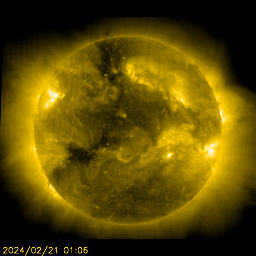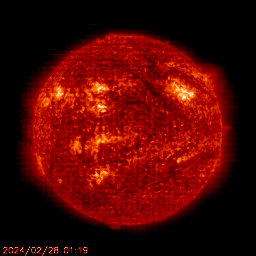chaos syndrome wrote:Hmm, would this appearance of white apply to carbon stars as well - as I understand it there are significant wavelengths missing from the spectrum...
The human eye is
hugely tolerant of spectral drop-outs, since it only has three colour receptors, each of which responds to a broad range of wavelengths - remember that even the spectrally crippled output of the coloured phosphors on your monitor screen can fool your eyes into seeing white.
chaos syndrome wrote:Checking through the source files it seems the colour of Wolf-Rayet stars would be quite easy to add (if you had a suitable compiler) - is there any idea what a suitable colour would be?
Although the spectrum is filled with C and N emission spikes, they wouldn't be that noticeable, I think (see above for the relevant argument). So a black body of around 50000K might roughly fit the bill: [0.53 0.64 1.00] on my Dell monitor. This is pretty robust for the range of predicted temperatures for Wolf-Rayets, since the high frequencies of the black body spectrum are close to being an exponential curve, which is pretty much self-similar whichever part of it crosses the visible range: 100000K comes out at [0.50 0.62 1.00], for instance, which doesn't look at all different to 50000K.
Grant








